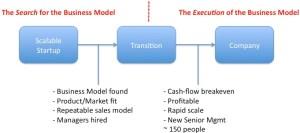Have you ever poured your heart and soul into a detailed business plan, only to realize it’s irrelevant once you start talking to customers? This is a common experience for many entrepreneurs. While a meticulously crafted business plan may seem like a surefire roadmap to success, it’s the dynamic nature of a business model that truly allows startups to adapt and thrive.
This article delves into the critical differences between a business plan and a business model, highlighting why understanding both is crucial for entrepreneurial success.
The Static Business Plan vs. the Dynamic Business Model

Think of a business plan as a static snapshot of your business idea at a specific moment. It captures your assumptions about the problem you’re addressing, the target market, the solution, the competition, and your team’s expertise. It often includes detailed financial projections, marketing strategies, and operational plans.
A business model, on the other hand, is a dynamic framework that outlines how your company creates, delivers, and captures value. It’s a living document that evolves as you gain a deeper understanding of your customers and the market.
Imagine a business model as a diagram showcasing the interconnected parts of your company:
- Value Proposition: What value are you offering to your customers?
- Customer Segments: Who are your target customers?
- Channels: How will you reach your customers?
- Customer Relationships: How will you interact with and retain customers?
- Revenue Streams: How will you generate revenue?
- Key Activities: What are the most important things you need to do to make your business model work?
- Key Resources: What resources are essential for your business model?
- Key Partnerships: Who are your key partners and suppliers?
- Cost Structure: What are the most significant costs in your business model?
The power of a business model lies in its iterative nature. As you gather feedback from customers, you adjust and refine your assumptions, pivoting your business model to better align with market realities.
Why a Business Model is Essential for Startups
 alt
alt
In the early stages of a startup, flexibility and adaptability are paramount. Here’s why prioritizing your business model is crucial:
1. Customer-Centric Approach: A business model forces you to focus on your customers’ needs and how your product or service fulfills them.
2. Iterative Testing: By defining your hypotheses about key aspects of your business, you can design experiments to validate those assumptions. This iterative process helps you identify and address flaws early on.
3. Agility and Adaptation: Markets change rapidly, and customer preferences evolve. A business model provides a framework for making quick adjustments to stay ahead of the curve.
4. Resource Optimization: By clearly outlining your key activities and resources, you can prioritize efforts and allocate resources efficiently.
The Role of a Business Plan
If a business model is so important, does that mean entrepreneurs should abandon traditional business plans altogether? Not necessarily.
Business plans still hold value, but their purpose has shifted. While not as crucial in the initial stages of finding product-market fit, a well-written business plan can be a valuable tool when:
- Seeking Funding: Some investors may still request a business plan to understand your long-term vision and financial projections.
- Communicating with Stakeholders: A business plan can be a helpful document for aligning your team, advisors, and early employees around a shared vision.
- Strategic Planning: Once you have a validated business model, a business plan can help you outline more detailed operational plans for scaling your business.
Business Model First, Business Plan Second
The key takeaway is this: Focus on building and testing your business model first. Engage with customers early on, gather feedback, and iterate your assumptions. Once you have a solid understanding of what works and have identified a repeatable and scalable business model, you can then develop a more comprehensive business plan to guide your growth.
Remember, the most successful entrepreneurs are those who are willing to adapt and learn from their mistakes. By embracing the dynamic nature of a business model and combining it with the strategic insights of a well-timed business plan, you’ll be better equipped to navigate the challenges of building a successful business.

